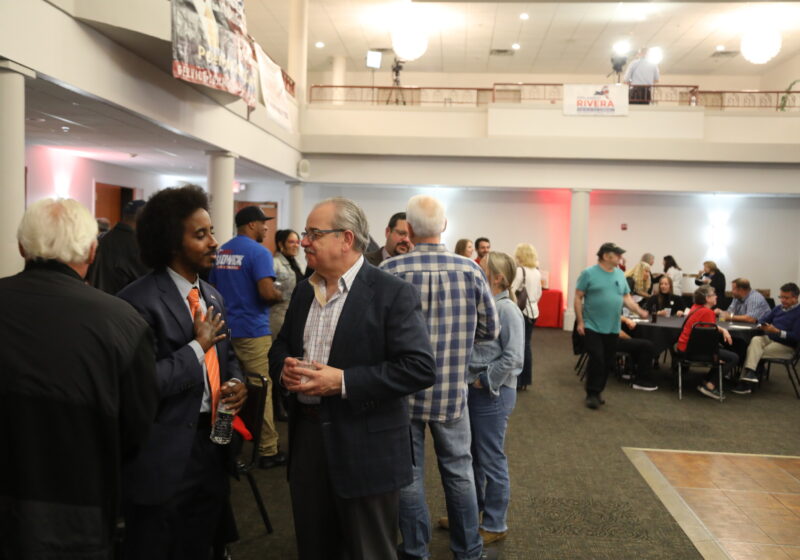Three different research programs have begun recently at the UR Medical Center. A program investigating a possible treatment or vaccine for Alzheimer’s disease is being led by Dr. William Bowers and Dr. Howard Federoff. The Autoimmunity Center of Excellence has been created, led by Dr. Ignacio Sanz. In addition, a research program into muscular dystrophy has been created, under the direction of Dr. Richard Moxley III.
All these programs are funded by the National Institute of Health.
The UR Center for Aging and Developmental Biology, a division of the Medical Center research program, has begun work on a possible treatment or vaccine for Alzheimer’s disease. This five-year program was created by a $1.25 million grant from the NIH after a grant request by Bowers, a gene therapist by training. They are working by genetically engineering variants of the herpes virus to train the body to handle a certain protein differently.
Alzheimer’s is believed to be caused by a buildup of a protein called amyloid beta peptides outside and between cells. The goal of project is to make the body treat the diseased form of amyloid beta peptides as a foreign substance.
“We’re essentially trying to induce an immune response to forms of [this protein],” Bowers said. “If this method is successful, the progress of Alzheimer’s might be stopped or even reversed. We’re a slave to the detection methods, but if we can catch it early enough, this could prevent it.”
Federoff is a leader of this research project, but he is involved in another way, as well. He has recently founded a research company called Amplivex which works in this area as well.
“We formed a start-up company that is just in the early stages of seeking
funding to try to take some of the basic science that we’ve done in the laboratory and license it to the company so we can actually put it in clinical trials,” Federoff said. “The Alzheimer’s work is not at all ready for that.” But when the Alzheimer’s research is ready for testing, that might change. “If [clinical trials] were then possible at that point, we could see a potential path for that vaccine or vaccines to be licensed to this company so they could then test them.”
The Medical Center has also been designated to receive about $3.8 million dollars to research certain autoimmune diseases. Autoimmune diseases are caused by the body’s immune system mistakenly attacking its own cells. The diseases studies in this project will be Type I diabetes, lupus, and multiple sclerosis. This program will be led by Ignacio Sanz, associate professor of medicine, microbiology, and immunology. The program, divided into three groups for each of the diseases it is studying, will at first follow a simple approach. They are looking for proteins unique to the overzealous immune system cells and drugs that can be used to destroy those cells. Sanz said, “Our first priority is to see if we can find existing drugs-ones that are readily available and have been proven safe-that can be redeployed to treat these autoimmune diseases.”
The work at the Medical Center on autoimmunity is just one part of a much larger program. The NIH grant was for a total of $51 million dollars, which has been divided among eight research facilities at universities as well.
A $5 million grant from the NIH, and $1.5 million more from the Muscular Dystrophy Association, has made possible a cooperative research center into causes and treatments for muscular dystrophy. Dr. William Moxley III, leader of the new program, said, “The funding and center are a blessing and a huge opportunity.”
This muscular dystrophy program is not the first research in that area at the UR Medical Center. Strong Memorial Hospital’s Neuromuscular Disease Center has gained international recognition for both research into muscular dystrophy and care of patients. However, like the autoimmune program, this program is a collaborative work as well. Researchers at the University of Pittsburgh and the University of Washington in Seattle are working closely with Moxley and his team.
About ten years ago it was shown that some forms of muscular dystrophy are caused by a certain genetic defect, but it is still not certain how the defect causes the disease. Answering that question is one goal of this study. Along with the other two programs they are working with, the UR researchers will be doing both laboratory research and care and treatment of patients.




